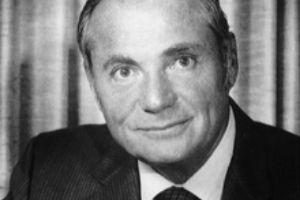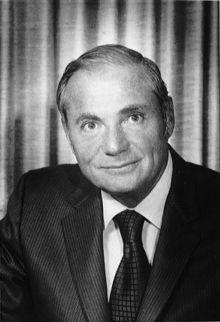It’s Moses in a Landslide

A blog post by JMM Executive Director Marvin Pinkert. To read more posts from Marvin click HERE.
There are those occasions when the secular and Jewish calendars converge in an unusual harmony. We all remember “Thanksgivukkah” and this year features the equally rare “Hanuyearsikkah”. But this month my thoughts go to an exceptional April convergence. Let me start with a question:
Q: When was the first time you could cast a vote for a Jewish candidate in a US presidential primary?
A: 40 years ago, in 1976, and the candidate was Gov. Milton Shapp

Well, of course, that’s if you lived in Massachusetts, Illinois or Shapp’s home state of Pennsylvania. By the time the primary calendar turned to Maryland in late May, Shapp had dropped out, after taking less than 5% of the vote in his home state. Another early favorite in the election season with strong ties to the Jewish community, Scoop Jackson, had also pulled out after the Pennsylvania primary. In fact, out of the 16 candidates who had entered the Democratic race only a handful remained by the time voting took place here. The winner, by a wide margin, was Jerry Brown. But Brown and the ABC (“anyone but Carter”) campaign started too late to stop Carter’s momentum. We may not have voted for the eventual Democratic nominee and president, but Maryland holds the distinction of being one of three states to vote for the only 1976 candidate who is still in public office forty years later.
So what makes this Maryland primary night different than all other Maryland presidential primary nights? Well, by my count it is the first time that Passover and presidential primary elections have converged in this state. From the 1960’s through 1984, Maryland Primary Day was in May, too late for Passover. From 1988 through 2008 Primary Day moved around between mid-February and early March, too early for Passover… even in 2012 when it was pushed back to late March it was still too early to overlap that year.
But this year the match between the Jewish festival of freedom and the secular exercise of liberty is “just right.”
Now Moses did not need to run in a primary, this didn’t mean he was immune to politics.
One of the earliest references I could find to political selection was in the Parsha Yitro in the Book of Exodus. In that section, Moses in the wilderness is overwhelmed by the burden of adjudicating every dispute in the community. He gets advice from his father-in-law Jethro (the first political consultant?) that he should appoint a system of judges to handle lesser cases. Jethro goes on to tell Moses “But you shall choose out of the entire nation men of substance, G-d fearers, men of truth, who hate monetary gain, and you shall appoint over them [Israel] leaders over thousands, leaders over hundreds, leaders over fifties, and leaders over tens.”
I make no claim to Biblical scholarship, but I find it interesting that the subject of the appointment of judges comes one chapter ahead of the delivery of laws on Mt. Sinai. This sequence – officials first, laws second – suggests to me an awareness that even the most noble and principled law can be perverted by unjust or corrupted men.
Today each of us plays a bit of the role played by Moses in selecting leaders for our community. The scale may be different, but as we go to the polls to choose a leader for the three hundred millions, I think Jethro’s advice about seeking people of substance, humility, honesty and financial integrity still applies. Let’s follow the example of Moses and choose wisely.
